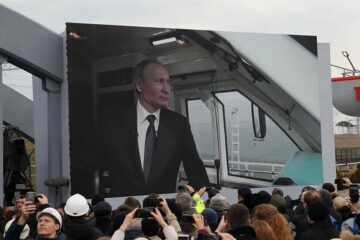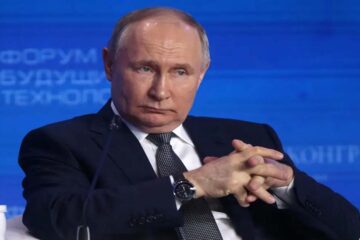Putin’s Strategy: Maintaining a State of War

According to Marie Mendras, a professor at Sciences Po University’s Paris School of International Affairs, Russian President Vladimir Putin relies on perpetuating a constant state of war to consolidate his power.
The Logic of a Paranoiac Leader
Mendras describes Putin as having the mindset of a paranoid leader, constantly operating in survival mode. In her latest book, “The Permanent War: The Kremlin’s Ultimate Strategy,” Mendras explores how Putin’s leadership hinges on maintaining a perpetual state of conflict.
History of Political Violence
Since his ascent to power in 1999, Putin has utilized political violence and instigated conflicts to assert control. This includes involvement in five wars across regions like Chechnya, Georgia, Donbas, Syria, and Ukraine, marking a pattern of escalating aggression to solidify authority.
Short-Term Tactics
Mendras suggests that Putin’s tactics revolve around immediate, short-term objectives aimed at instilling fear and compliance among the populace. His strategy seems geared toward coercing acceptance of his rule through intimidation rather than fostering long-term stability.
Challenges to Opposition
Given the authoritarian nature of the regime, Mendras doubts the likelihood of significant revolutions or rebellions within Russia. The entrenched dictatorship makes dissent perilous, further reinforcing Putin’s grip on power.
Economic Realities
Despite Russia’s apparent economic resilience, Mendras cautions against interpreting official statistics at face value. She highlights the role of war spending and subsidies in driving GDP growth, indicating a reliance on unsustainable economic stimuli.
Political Landscape
As Putin vies for a fifth presidential term in the upcoming March election, his main political adversary, Alexey Navalny, recently died in prison. Navalny’s vocal opposition to Putin’s regime underscores the challenges to dissent within Russia, with the EU holding Russia accountable for Navalny’s demise.
Mendras’s analysis sheds light on Putin’s strategy of perpetuating conflict to maintain control, highlighting the complexities of Russia’s political landscape and the enduring challenges to democratic opposition within the country.












